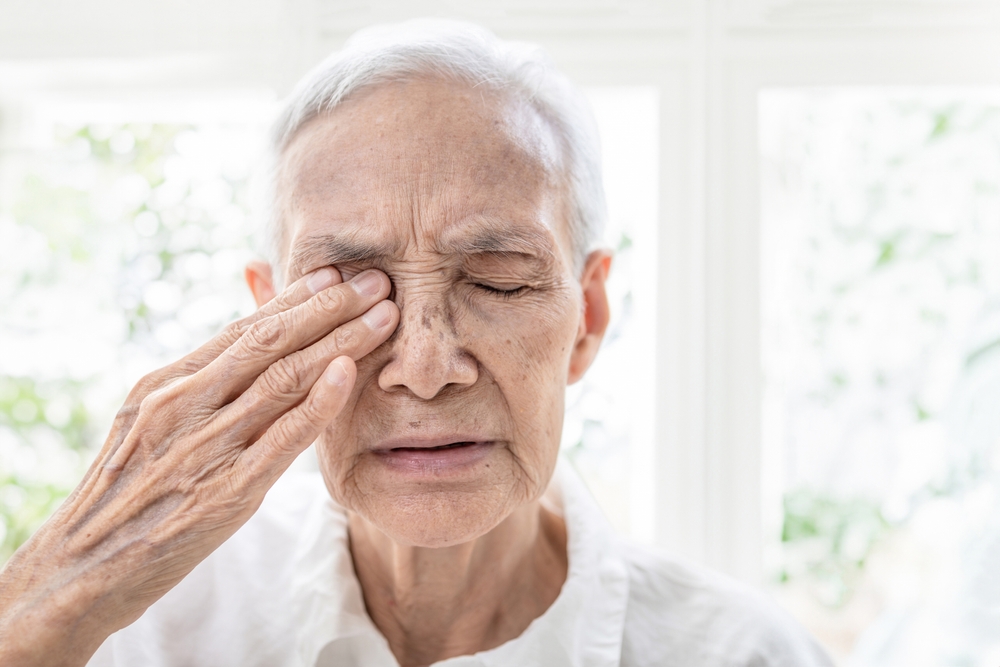
Age-related macular degeneration (AMD) affects many older adults. It can lead to a lot of vision loss if it goes untreated. But with the right management, people can still preserve their vision and quality of life. Understanding how to manage AMD is very important.
AMD affects the macula, which is the central part of your retina. The macula helps with the sharp, detailed vision you need for daily tasks.
AMD typically develops in two forms, which are very different from each other.
Dry AMD
This is the more common type of AMD. It is characterized by the gradual breakdown of the light-sensitive cells in the macula. This type of AMD progresses very slowly. It usually only causes mild vision loss over a long period of time.
Wet AMD
This is a more serious type of AMD where blood vessels grow abnormally under your retina. This can lead to a very sudden and dramatic decline in your vision if it is not addressed.
Early Detection Is the Key
Early detection of AMD is very important for managing the condition effectively. Since AMD often does not show any noticeable symptoms early, routine eye exams are very important. During these eye exams, your eye care professional may use special tests to monitor the health of your macula. The earlier AMD is diagnosed, the more options you will have for managing it. Catching the condition early can help slow its progression and help prevent more damage.
Lifestyle Changes to Help Slow It Down
Although there is no cure for AMD, certain lifestyle changes can help you slow its progression. Adopting healthier habits can positively impact your eye health. This can also help reduce the risk of developing AMD or worsening any existing symptoms.
Since smoking is a major risk factor for AMD, you must stop it if you do engage in it. It can increase the rate at which AMD progresses and can speed up damage to your retina.
A balanced diet with leafy greens and fruits can help your eye health. Nutrients are very important for maintaining a healthy macula. Being physically active will also help improve blood circulation.
Exposure to the sun’s harmful UV rays increases your risk of developing AMD. You should protect your eyes by wearing sunglasses with UV protection whenever you are outdoors.
Treatments for Wet AMD
Wet AMD requires more immediate attention from a medical professional. Treatment options aim to stop the abnormal blood vessels from growing and help prevent further vision loss. Here are some common treatments:
Anti-VEGF Injections: These injections help block the growth of abnormal blood vessels under the retina. Anti-VEGF therapy is the most common and effective treatment for wet AMD.
Photodynamic Therapy (PDT): This is the use of a light-activated drug that destroys abnormal blood vessels in the retina. This treatment slows the progression of wet AMD.
Laser Therapy: High-energy laser beams here target and destroy abnormal blood vessels. However, this treatment is less commonly used now due to the effectiveness of injections.
Ongoing Research and Future Treatments
The future of AMD treatment looks very promising for many people. Researchers are working hard to come up with new treatments. Some treatments here include gene therapy and stem cell therapy. These therapies aim to repair any damaged retinal cells and can even restore vision. Advancements in therapy and improved technologies are helping doctors monitor AMD more effectively.
If you think you might have AMD, you should call your eye care professional for help.
For more on AMD, visit Monrovia Optometry at our Monrovia, California office. Call (626) 210-3900 to book an appointment today.
https://my.clevelandclinic.org/health/diseases/15246-macular-degeneration
https://www.nhs.uk/conditions/age-related-macular-degeneration-amd/treatment/




